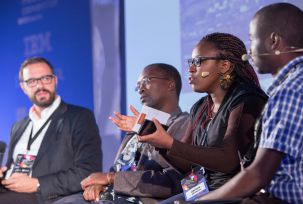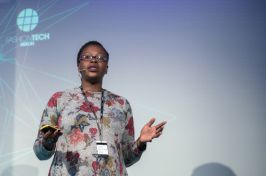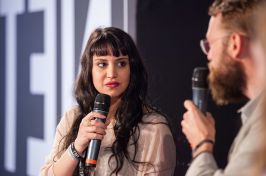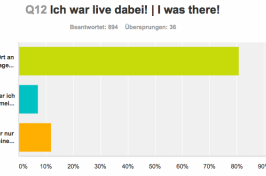Multiple African states block social networks or undesirable content for political reasons. Things that are seen as self-evident in Europe are considered a privilege in Africa. On Day 1, the three experts, Daniel Ominde, Ruth Aine Tindyebwa and Takura Zhangazha, reported on the state of affairs in the "African Elections and Social Media Shutdowns" talk.
For example, the Ugandan government blocked Facebook, Twitter and WhatsApp during the 2016 elections and reaped the scorn of the internet users. "Governments are very afraid of the internet, that's why they block it" stated Kenyan blogger and journalist Daniel Ominde.
Along with his colleagues Ruth Aine Tindyebwa from Uganda and Takura Zhangazha from Zimbabwe, Ominde discussed how the governments of various African states block access to social media, especially during political elections. "Nobody tells the citizens how they should deal with these topics" said Tindyebwa. Zhangazha sees the problem lying in the fact that many people in Africa still see "the internet as a privilege and not as a right." This is the reason why they don't fight back adequately against the closures.
Zhangazha reported that, in Zimbabwe, the government suppressed online content with the aim of controlling specific political views. To be able to achieve this, the government pressures the telecommunications providers by demanding they block certain services. The companies follow the orders as they didn't want to lose their licences.
Zhangazha believes that this is the case in most countries in Africa. "The governments are scared of how social media content affects the people's opinion making."
Image: re:publica/Jan Zappner (CC BY 2.0)





